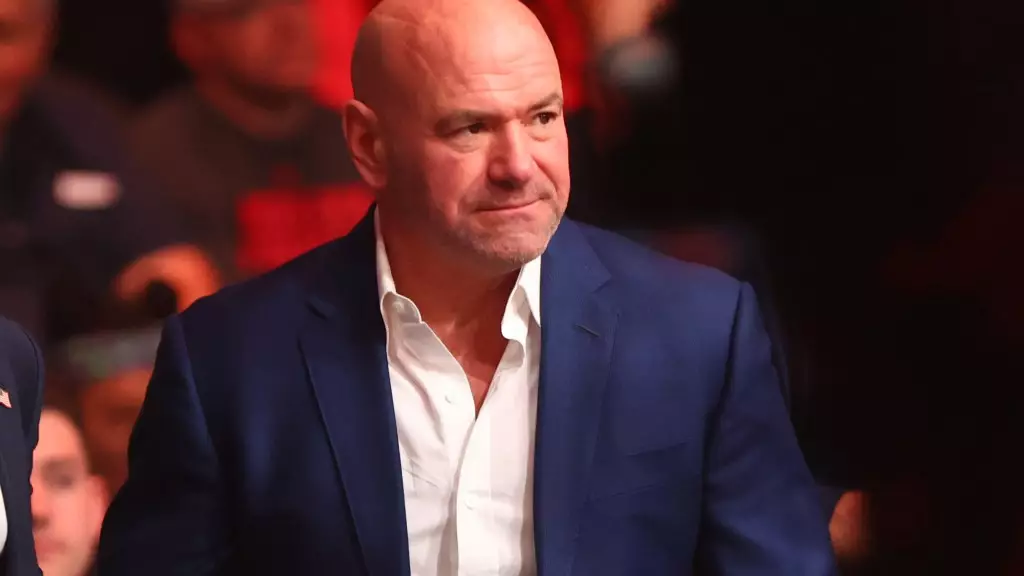The recent approval of a significant antitrust settlement involving the Ultimate Fighting Championship (UFC) marks a pivotal chapter in the ongoing struggle between combat sports athletes and the promotions governing their careers. An announcement from a U.S. district court judge confirmed that the UFC will allocate $375 million to resolve the lawsuit led by Cung Le and former fighters, a move that could bring much-needed relief to many who have grappled with the consequences of their careers in mixed martial arts (MMA).
Presiding Judge Richard Boulware granted a preliminary approval for the settlement on October 22, 2024. It is reported that approximately $240 million to $260 million will be directed to qualifying fighters who participated in UFC bouts between December 2010 and June 2017. This ruling is particularly significant given that it follows an earlier rejected proposal for a $325 million settlement that included additional claims from a separate lawsuit involving another group of fighters.
The revised agreement, which had the Johnson versus Zuffa claims removed and an extra $40 million added, illustrates the complexity and movement within the legal negotiations. These changes were likely made to address concerns raised by Judge Boulware regarding equitable distribution and the inherent discrepancies in fighter compensation claims. The assertion that over 100 former fighters submitted testimonials highlighting their struggles post-UFC further underscores the emotional and psychological weight behind this case. Their appeals for assistance in the wake of their fighting careers evidently played a vital role in the judge’s approval.
The anticipated payout represents not just financial restitution but a significant acknowledgment of the challenges many fighters endure beyond their time in the octagon. Many members of the mixed martial arts community face a host of issues—including physical injuries, mental health challenges, and financial instability—after their careers end. The court’s decision reflects a growing recognition of these pressing concerns.
Veteran combat sports reporter Josh Gross highlighted that the letters from fighters detailing their hardships were instrumental in the approval process, emphasizing the personal stakes involved. This acknowledgment also signifies a shift in how the UFC and the broader MMA industry may operate moving forward. A favorable ruling not only creates a precedent for future settlements but also compels the UFC to rethink its contractual practices and business strategies that have historically sidelined the welfare of its competitors.
While the current settlement could alter the landscape for UFC fighters, it is essential to note that final approval is still necessary. Once the qualifying fighters are notified, they will have the opportunity to express their approval or concerns regarding the current terms. A follow-up hearing is set to determine the validity of the agreement, a step that could define not only the immediate outcome but the future relationship between UFC executives and their fighters.
Lead attorney Eric L. Cramer conveyed a positive sentiment following the preliminary approval, framing it as a monumental achievement in the push for justice and compensation for MMA athletes. He emphasized the long game that these legal challenges represent—pursuing changes that extend beyond financial restitution to influence the UFC’s operational standards and fighter treatment in a more meaningful manner.
Transitioning to the second lawsuit, Johnson vs. Zuffa, the plaintiffs aim for more than just compensation. Their focus on seeking injunctive relief indicates a desire for systemic changes within the UFC’s approach to contracts and business practices. This dual-layered legal strategy offers a comprehensive effort to reform the environment in which fighters operate, seeking to dismantle the monopsonistic practices that have been a part of the UFC’s structure.
The approval of this settlement could serve as a wake-up call for the entire combat sports industry. As more fighters and advocates become aware of their rights and the possibility to challenge long-standing practices, there is potential for transformative growth in the treatment of athletes. The complexity of these lawsuits and the voices advocating for change may indeed catalyze a re-evaluation of how promotions like the UFC engage with their talent and the kinds of support they provide.
The preliminary approval of the $375 million antitrust settlement symbolizes both a significant victory for UFC fighters and a call to action for reform in the combat sports arena. The long-term effects of this settlement, if finalized, could resonate throughout the industry, setting a transformative precedent for future negotiations, fighter treatment, and the overall structure of promotional contracts in mixed martial arts.

